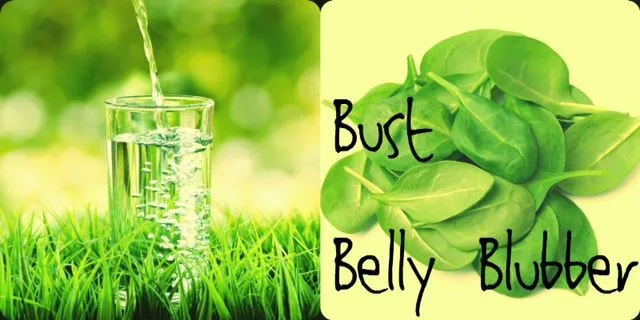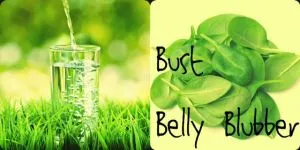
- Share on Facebook1259
- Share on Pinterest
- Share on Twitter
You’ve probably heard that excess abdominal fat increases your risk of a number of diseases, including cancer, hypertension, and heart disease.
However, a study published in the Journal of the American College of Cardiology was the first to use a CT scan to study specifically located fat deposits for direct associations with disease risk – confirming the dangers of belly fat.
Because this visceral fat lies deep in the abdomen, surrounding organs and secreting toxic hormones, it contributes to the thickening of the walls of coronary blood vessels, which increases the chances of having a heart attack.
In another study, it was discovered that people with a great amount of belly fat were twice as likely to die prematurely as those with little belly fat (Klein, S. et al. Absence of an effect of liposuction on insulin action and risk factors for coronary heart disease. New England Journal of Medicine. Vol. 350(25): 2549-2557).
The liver also suffers when you have too much belly flab. It has to work that much harder to filter out toxic substances.
This is the bad news… but, there is also good news. You can win the battle of the bulge by taking on a holistic approach to wellness. There are no quick fixes or magic bullets, but there are a couple of weapons you will want in your arsenal as you set out to combat belly blubber. While you plan your method of attack, start with these tough guns – they will get you headed in the right direction.
Weapon #1 Water
Water is by far the beverage of choice, especially if you are a health conscious individual who fully understands the power of water to nourish and sustain life. While the human body can go about three weeks without food, it cannot survive for more than three days without water.
Water is essential to every bodily function. No other liquid can sustain your body like water, and the body needs a certain amount of water to function well.
The sad truth is that most people just don’t drink enough water. However, without water, your kidneys and liver cannot eliminate toxins, your colon cannot move your bowels, and thus, toxins which lead to a host of compromising health conditions build up in the body.
Dehydration is responsible for any number of uncomfortable to downright deadly symptoms, such as fatigue, muscle pain, irritability, weight gain, headaches, dry skin, constipation, vertigo, low blood pressure, rapid heart rate, fever, rapid breathing and unconsciousness. Chronic dehydration may cause such things as arthritis, depression, accelerated aging and mood swings.
But how is water related to fat loss?
Water makes up about seventy percent of the human body – organs contain an even greater percentage of H2O. Take the liver, for example: it is almost 95 percent water. Water plays a role in every single chemical reaction that happens within the body.
When you don’t get enough water, your body hold fast to what it has. You body is smart, very smart.
When it is deprived it shifts into survival mode, and the result of this is water retention. Once you provide the body with what it needs, water, it begins to let go of what it has been storing – this immediately causes a reduction in bloating, especially around your belly, ankles and face.
Let’s shift back to the liver for a moment – remember, your liver is 95 percent water. The liver is one of the most important organs in your body – especially when it comes to fat burning and detoxification. The liver’s main responsibility is to break down toxins and escort them out of the body.
When we don’t drink enough water, the liver can’t do its job of fat oxidation, which is one reason that it is imperative that we keep it running at 100 percent efficiency. Without ample water, your kidneys – which also remove toxins and waste from the body – can’t fully function.This means that the liver has to pick up the slack. With the liver working overtime to remove toxins, it can’t do its job of fat metabolism properly.
Studies have also demonstrated that even a slight amount of dehydration can zap energy and reduce exercise performance. The more hydrated you keep your body, the more efficient it will be overall with regards to fat burning and muscle building. Remember, the more muscle you have, the more fat you burn – even while you sleep!
How much should I drink?
This is the question that everyone seems to ask. If you want to be sure that you are drinking enough to support a healthy metabolism, aim for a gallon of water, or 8 sixteen-ounce cups of water, per day. If you find it hard to drink water plain, add a slice of lemon, lime or orange. You will be surprised at how much flavor the fresh fruit adds.
Weapon #2 Vegetables
Of course, it goes without saying that you should get your carbohydrates from whole foods, not refined sugar, high fructose corn syrup or processed food.
Obviously, if you have to choose between a carrot and a bag of chips, the carrot should always win out. Vegetables are nutrient-dense, meaning they provide a big bang for their ‘buck.’
However, what about variation between vegetables; are some vegetables better belly blubber busters than others?
The answer is yes, and it somewhat depends on whether or not you are insulin resistant and partly on what your body chemistry is like. Some people have a higher tolerance for high-sugar vegetables than others.
If you have a lot of weight to lose or know that you have trouble with insulin resistance, it is best to stick to low-sugar, high nutrient vegetables. Here are eight great ones to consider:
Salad greens: These include all leafy greens that you use to make a salad. According to the American Dietetic Association, salad greens are basically “free” foods, meaning you can eat as much as you desire. They have less than 20 calories, plenty of healthy vitamins and fewer than 5 grams of carbs per one-cup serving.
Peppers: Peppers range from mild and sweet to fiery hot and everything in between. All forms of peppers are excellent for weight loss and weight management. Peppers are one of the richest sources of vitamin C, which boosts immune system function and assists in the assimilation of other nutrients.
Sweet potatoes: Although sweet potatoes are higher is sugar than some other vegetables, they are jam-packed with nutrients. A 4-oz potato contains only 80 calories, has 3 grams of fiber and is one of the best sources of potassium. These tasty potatoes also contain vitamin C and vitamin A.
Tomatoes: One cup of cherry tomatoes contains only 25 calories, but has 2 grams of protein and 2 grams of fiber. The biggest health bonus of tomatoes is that they are rich in lycopene, a carotenoid which is highly beneficial for cancer prevention, according to the Linus Pauling Institute.
Portabella mushrooms: These large and tasty mushrooms are packed with health promoting compounds. Perfect for marinating and tossing on the grill, portabellas contain copper, riboflavin, niacin, copper, phosphorus, thiamin and pantothenic acid.
Spinach: Popeye was right when he said to eat your spinach. One of the least sugary vegetables, spinach has only 10 calories per one cup serving, and plenty of fiber. Enjoy spinach as part of salad, or lightly steamed. Some people even put a handful in their smoothies or juices.
Cucumbers: Who can resist the slightly sweet taste of a fresh cucumber? They are one of the oldest known cultivated vegetables, native to India, and are now one of the most commonly grown crops in America. Cucumbers are extremely low in calories and high in water. They contain numerous vitamins and minerals and also act as a detoxifier, assisting the body in the elimination of dangerous toxins.
Cabbage: Cabbage is a low calorie, high nutrient blood cleanser that removes free radicals and uric acid, which can lead to arthritic pain, skin diseases and gout. Cabbage is excellent roughage, high in vitamin C, and also contains beneficial iodine. Iodine is necessary for proper brain, endocrine and nervous system functioning.
 If your goal is weight loss, don’t fall for the “fake” packaged diet foods that are full of artificial fillers and processed ingredients. Choose instead to fill up on vegetables.
If your goal is weight loss, don’t fall for the “fake” packaged diet foods that are full of artificial fillers and processed ingredients. Choose instead to fill up on vegetables.
According to Mark Sisson, author of The Primal Blueprint, 50 to 100 grams of carbohydrates from healthy sources such as vegetables, fruits and certified raw or organic sources will promote a gradual weight loss of 2 pounds each week. Because they are so low in calories and high in vitamins and minerals, your body will thank you for including them in your diet every day!
Remember, the best choice is always local and organic.
-The Alternative Daily
Sources:
http://ndb.nal.usda.gov
http://lpi.oregonstate.edu/infocenter/phytochemicals/carotenoids
Choose Your Foods: Exchange Lists for Diabete; American Dietetic Association; 2008
Linus Pauling Institute; Carotenoids; Jane Higdon; December 2005
- Share on Facebook1259
- Share on Pinterest
- Share on Twitter

